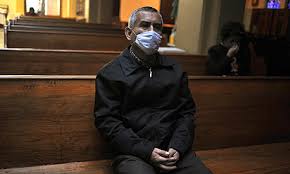
At the study conference people asked, “Why aren’t people coming to church anymore?” And I was struck by the seriousness with which people took the question.
I think that's the wrong question. It makes church all about US and what WE'RE losing.
But more distressingly, the undercurrent of that question is “What’s wrong with people that they don’t see the world as we Christians see it? Why do we have to work so hard to keep our doors open?”
Whenever I hear people complain about churches emptying I want to respond: why SHOULD people come to church? Why should going to church be part of social expectations? Why should attendance at worship be expected to be the norm in peoples’ lives?
What we should be asking is, “What is driving people away from church?” Or, perhaps, more importantly, “Is the way we presently do church turning people away from God?”
We heard from Bishop Ron reporting George Barna’s most recent research, that people are open, hungry for spiritual things, but turned off by church. People have a longing to touch the divine but don’t feel compelled to find the holy in traditional churches.
People, Bp Ron reported, are into a “do-it-yourself” religion. “Whatever works for you.” The assumption is that people are disconnected from centuries old wisdom that has pondered ancient mysteries, dismissive of organized religion that has brought comfort and peace to seekers of God for thousands of years.
But what is not acknowledged is the tradition that they are reacting to. The tradition that told women to be silent in church, the tradition that told people to be afraid or suspicious of their sexuality (homo, hetero, or...?), the tradition that mistook God’s power for Caesar’s - institutional religion that is more interested in protecting itself and its power over peoples’ lives than in setting people free in Jesus' name.
Whatever name you give our present cultural context, postmodernism or something else, it is a reaction to harm done in the past. And we can’t go on complaining about what we’ve lost as a church until we recognize our complicity in creating the problem.
We are given an incredible opportunity to show humility to the world. This is a missional opportunity. If we engage the world with open ears and soft hearts, then we might earn the privilege to open our mouths with the gospel. When people see that our agenda is nothing more nor less than a ministry of life and healing, rather than creating a group of churchgoers, than I think the world will listen.
People are hungry for God. But doesn’t mean they’re hungry for institutional church. Nor should it.
So, instead of asking, "Why aren't people coming to church?" The question should be, "Why aren't we going to them?"
No comments:
Post a Comment